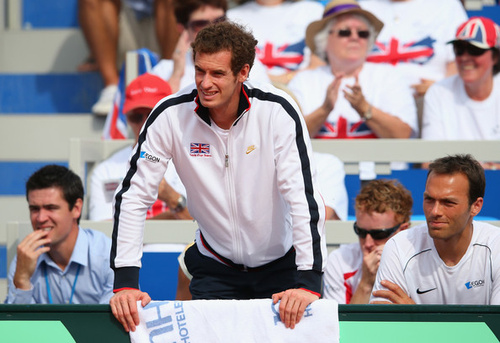Don't miss any stories → Follow Tennis View
FollowThe Aftermath of Viktor Troicki: Reforming Tennis Anti-Doping Programs
On Wednesday, Viktor Troicki will have his day in front of the Court of Arbitration for Sport to defend himself against a doping violation that led to an 18-month suspension.

Troicki received the ban after refusing to submit a blood test at the Monte Carlo Masters1000 tournament in April,opting for a urine test. The Serb cited poor health for his reasoning and claims that a control officer allowed him to take a blood test the following day, which came back negative. The International Tennis Federation disputes the claim.
Regardless, the confusion and lack of clarity of the policy has stirred opinion by players throughout the league and placed anti-doping policies back in the forefront of the sport. Not surprisingly, fellow Serb and six-time major champion Novak Djokovic has stood behind Troicki in petitioning for a change in protocol regarding anti-doping procedures. He claims that the system in its current form is unfair to the players.
This controversy garnered the attention of ITF anti-doping manager Stuart Miller. “The tennis anti-doping rules are likely to be changed in 2014 to say that, where a player refuses or fails to provide a sample, the doping control officer should try to offer the player an opportunity to speak to the event supervisor or referee to confirm the player's responsibilities under the program,” said Miller when speaking to CNN.
Interestingly, applying the potential changes laid out by Miller may not help Troicki in his case. The ITF tribunal's decision states: “On the way to the DCS (Doping Control Station), Mr. Troicki and Mr. Charleux passed by the office of the ATP Tour Manager, Mr. Bratoev. Mr. Troicki told Mr. Bratoev that he had been selected for a blood test, but that he felt dizzy and unwell and that giving blood made him feel bad. Mr. Bratoev's response was that, once selected, he had to do the test.”
In the bigger picture, the question that begs to be asked is whether upcoming changes are actually enough given recent doping violations?
For the most part, tennis has escaped the wrath of doping scandals that have plagued other Olympic sports, such as cycling. On the other hand, there has certainly been plenty of discussion causing some in the sport to voice their opinions. Tomas Berdych, Andy Murray and Roger Federer have joined Djokovic in calling for more testing. The ITF acknowledged the players’ concerns by adopting the biological passport program in their anti-doping policy and by increasing drug tests. But, as recently as the US Open, Murray claimed that attempts by tennis to catch doping cheaters has been “pretty useless.”

Tennis only needs to look at a timeline that leads back to Andre Agassi in the men's game. Agassi stated in his autobiography, Open, that he tested positive for crystal meth in 1997 and talked his way out by blaming a spiked soda. Czech player Petr Korda tested positive for nandroline a year later, blaming steriod-fed veal as the source. In 2009, Richard Gasquet tested positive for cocaine but was cleared after claiming he had kissed a woman in a nightclub who was a user. In 2010, eight vials of human growth hormone were found in Wayne Odesnik's luggage in a Brisbane airport, prior to the Australian Open. In 2012, James Blake hinted that there were players cheating and getting away with it by staying ahead of testers.
Are these simply random incidents or warning signs of a greater issue? Certainly, they are evidence that tennis must continue to progress in their anti-doping efforts.
Despite these incidents, tennis has not received a black eye to the extent that a number of other sports have. Bold, firm decisions made on anti-doping now may prevent a scandal in the future. With so many top spokesmen of the game (such as Murray) speaking out on the issue, there appears to be an underlying vibe of a potential problem that may be bubbling to the surface.
Thus, tennis cannot afford to take a reactive stance on the issue moving forward. That would likely only lead down a path traveled by other sports that have been accused of serious credibility issues in this area. Those sports suffered in popular appeal from those incidents and ensuing investigations.
The policy changes surrounding the Troicki decision need to build on recent changes to protocol and clarify a firm stance that choosing to dope will come with consequences, sending a clear message that players recognize. Pro-active strides in the future will go a long way in preventing a compromise in the integrity of the sport.










